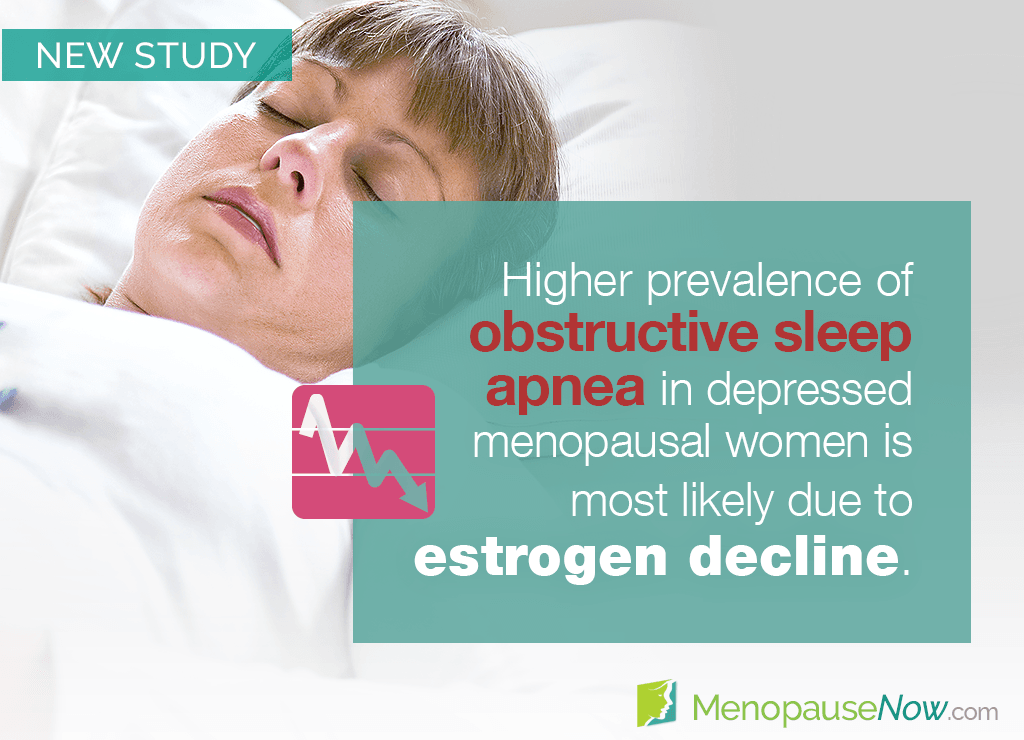Sleep problems affect about 40% of middle-aged women.1 One of their types, obstructive sleep apnea, often goes undiagnosed, increasing the odds of serious complications, such as depression and heart disease. Unfortunately, women in menopause are a population at risk.
Since both depression and sleep problems in women are prevalent during times of hormonal fluctuations, American researchers took a closer look at the possible link between estradiol levels and obstructive sleep apnea in depressed menopausal women.
Study Design
There were 30 peri- and postmenopausal women with mild to moderate depression participating in this preliminary study. They were between the ages of 40 and 62 and have never been diagnosed with obstructive sleep apnea.
Women underwent routine polysomnography (a sleep study used to screen for obstructive sleep apnea) and had their serum estradiol levels checked. Researchers then thoroughly compared the results, evaluating potential associations.
Study Findings
Out of all participating women, almost half (43%) had indications of moderate to severe apnea, despite not having been diagnosed with it before enrolling in the trial.
Estradiol levels were lower in women with obstructive sleep apnea in comparison to those without it. It was also observed that women with obstructive sleep apnea were more likely to be obese or overweight as well as of an older age.
For reference, 90% of the participants were obese or overweight.
What Does It Mean?
This preliminary study offers a number of important insights in regards to obstructive sleep apnea and menopausal women. They were published in the renowned Menopause journal.
First of all, the study has shown that the condition is commonly undiagnosed in women with depression passing through the midlife transition.
Moreover, the results of this study suggest that lower estradiol levels may be linked to a higher risk of obstructive sleep apnea in depressed, menopausal women. Body weight and age may play additional roles.
Authors call for larger studies to further explore the risk factors that determine middle-aged women's susceptibility to obstructive sleep apnea.
Sources
- Menopause. (2017). Association of Estradiol with Sleep Apnea in Depressed Perimenopausal and Postmenopausal Women: A Preliminary Study. Retrieved March 31, 2021 from https://www.ncbi.nlm.nih.gov/pmc/articles/PMC5177515/
Footnotes:
- Seminars in Reproductive Medicine. (2010). Evaluation and management of sleep disturbance during the menopause transition. Retrieved March 21, 2021 from https://pubmed.ncbi.nlm.nih.gov/20845239/

